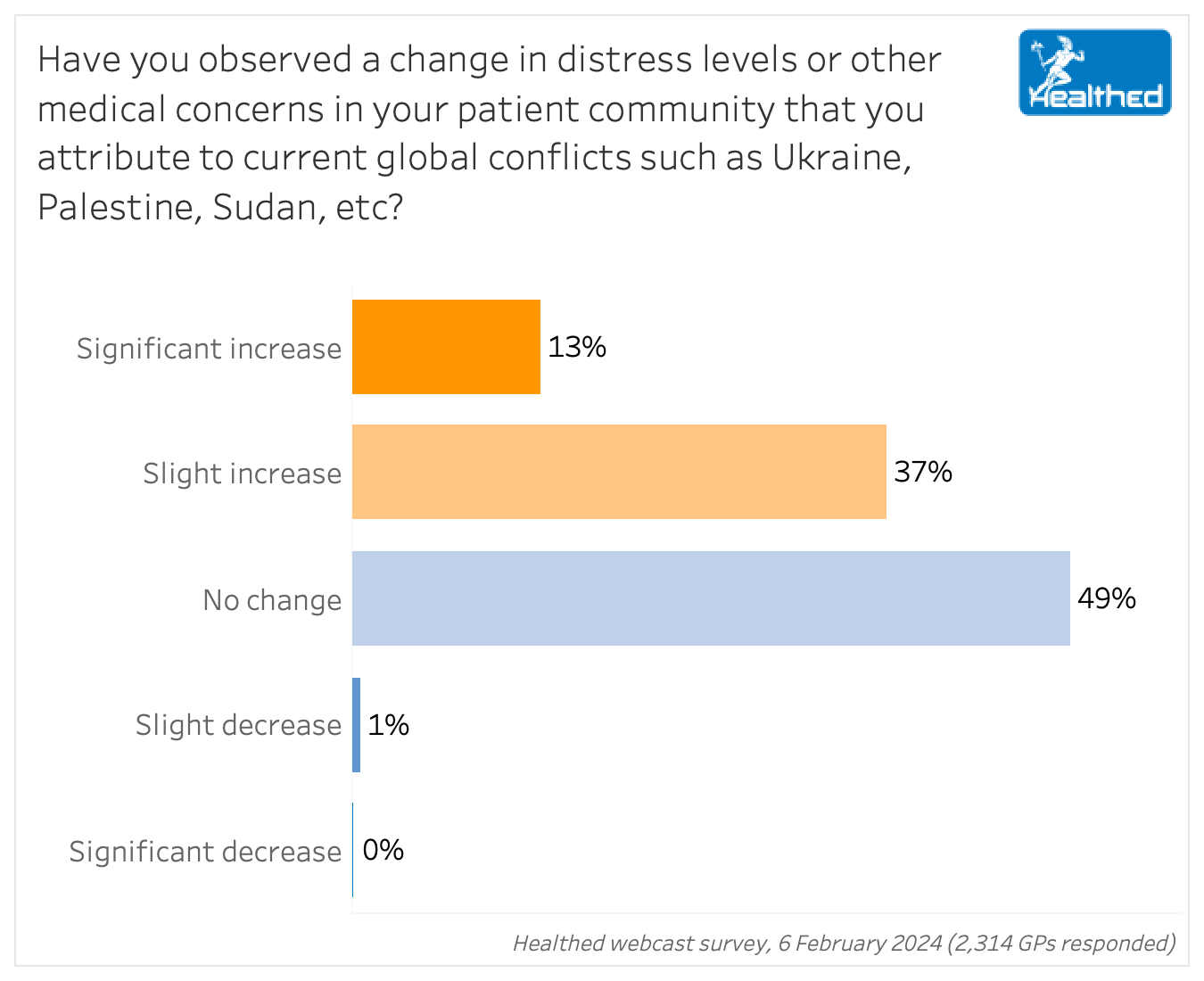Articles / Distress from global conflicts on the rise

Fifty per cent of GPs have seen a rise in patient distress levels related to global conflicts, a recent Healthed survey of more than 2,300 GPs found.
While over a third of respondents reported a slight increase, more than one in ten reported observing a significant increase in distress or other medical concerns they attribute to conflicts in places such as Palestine, Ukraine and Sudan.

The Australian Psychological Society (APS) says it is not just those directly impacted by war and war crimes who experience adverse effects.
“Many people will find the news and images of the conflict extremely upsetting, and for some, old traumas will be reactivated,” the APS said in a statement on the Israel-Palestine crisis, noting that it comes at a time when many Australians are already experiencing psychological strain.
Some people may be particularly vulnerable to distress. Those at increased risk may include current and former service men and women, people who have experienced war or displacement, and those with personal or family ties to places where conflict is occurring.
Australians with ancestral links to homelands affected by war or violence may experience “long distance suffering and devastation,” Professor Nicholas Procter explains in an article in The Conversation.
“Diaspora migrant groups should not be seen as isolated from their country of origin,” he writes. “Rather, they are subject to global influences over their personal and social life, their health and well-being.”
As such, they “can identify completely with the pain and anguish they see and hear.”
Apart from referring patients who are experiencing distress to mental health support services—especially those who may be at risk of being re-traumatised—the APS suggests some other strategies that can help.

Allergen Introduction – Practical Tips for GPs

Oral Contraception Update

What do we do With High Triglycerides?

An Update on Heart Failure in Primary Care

Very overestimated
Moderately/slightly overestimated
Quite accurate
Moderately/slightly underestimated
Very underestimated
Listen to expert interviews.
Click to open in a new tab
Browse the latest articles from Healthed.
Once you confirm you’ve read this article you can complete a Patient Case Review to earn 0.5 hours CPD in the Reviewing Performance (RP) category.
Select ‘Confirm & learn‘ when you have read this article in its entirety and you will be taken to begin your Patient Case Review.





